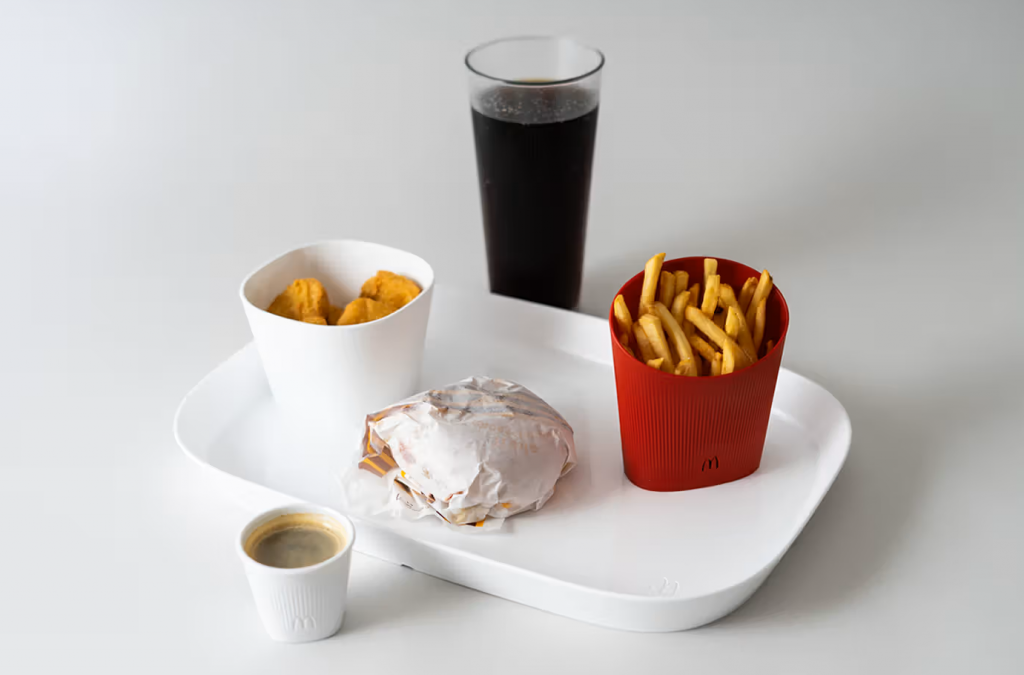Having looked at the part food service giants have to play in driving sustainable change in the sector and efforts to tackle street waste and littering, the final blog in our series looks at legislation and its impact on driving change.
There’s no question that legislation is imperative to enforce tangible change and tackle complex and challenging problems, particularly in the minefield of food service. However, is legislation enough on its own to drive the collaborative change we desperately need?
In my opinion, legislation is the best starting point to deliver the level of change required. However, if we want to succeed and present truly circular alternatives in such a complex sector, we absolutely must as an industry collaborate, educate and share knowledge.
Gillian Summerhill, Aura
Take single use plastics restrictions for example: restricting or, in some cases, banning these items is of course a positive first step and eradicates undisputed problematic products / packaging, which contribute nothing to a circular economy and are a big contributor to ocean pollution. However, we need to go further than legislation alone. We must push the boundaries of innovation and deliver commercially viable, proven lower CO2 alternatives to banned items that provide a tangible net positive improvement.
Due to the sheer extent of their use and consequent littering statistics, plastic cutlery, straws and tableware have been a key focus on legislative restrictions, and rightly so! However, finding the right available alternative solution for each market can be incredibly complex.
In an ideal world, we would be moving away from single-use altogether to a reuse model, which under the right setup, (cleaning / re-use process, number of cycles, efficiency) could potentially result in lower CO2 and a more circular model. Enforcing reusable tableware in some markets such as France this year has proved to be a positive initiative when eating in. Fast food giants such as McDonald’s have embraced this change and branding opportunity, transforming their iconic packaging design into instantly recognisable reusable versions of the classics. It will however be much more difficult to translate this into takeaway / on-the-go solutions.

Moving to a true reuse model for on-the-go will require serious behavioural shifts from consumers and, to be realistic, we are still some way away from that. Currently, convenience culture still demands single-use options to replace the previous plastic item, so education is key to driving longer-term change. This is absolutely possible to achieve with a combination of legislation, education and industry collaboration, even though it will take time. Just think back to when critics said single use carrier bags would always be needed. Nowadays, no-one bats an eyelid at bringing bags for life for their shopping or complains about paying for reusable bags.
In the meantime, when looking for the right solution for your business, there are many pros and cons to consider, with just a few of the common examples below:

As can be seen, from an environmental impact perspective, there is unfortunately no ‘silver bullet’ or perfect solution. It’s a challenge across the board to find definitive data of life cycle analysis comparing these available options, and we need to understand the overall impact by market and for each individual business to be able to make informed choices. Add to this the ‘binfrastructure’ / on-the-go recycling and littering concerns from our previous blog (which apply regardless of chosen substrate) and we start to see the magnitude of the challenge.
This may seem like a minefield, but the positive is with legislation as the catalyst, sustainable solutions should become more widely available and less cost-prohibitive, which is a step in the right direction to kickstart longer-term change. This is a challenge we frequently help our food service clients overcome. Navigating global legislation and finding packaging solutions to meet these needs with the lowest financial and environmental impact is complex. At Aura we have the ability to guide you through these challenges and find the right solution for you, your customers and the planet.
I wholeheartedly believe that increased and improved legislation is key to delivering the level of change required to drive towards net zero and protecting our environment, but legislation alone can only go so far. In the industry and as consumers, we all have a part to play in driving step change and making responsible decisions.
Gillian Summerhill, Aura














